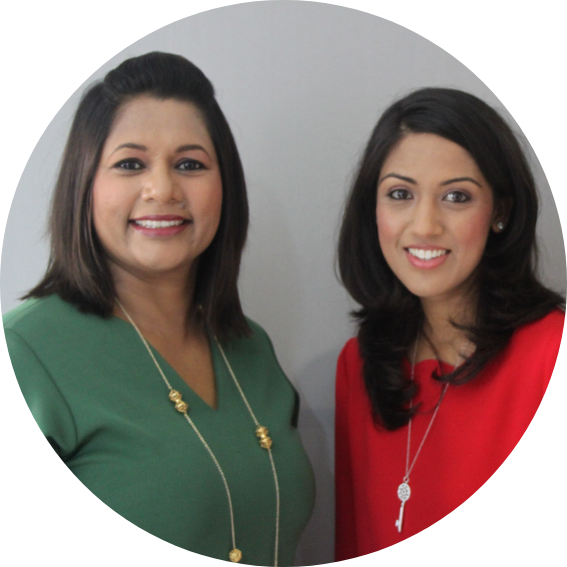What you study is not (necessarily) what you do

In India, the concepts of “higher education” and “career planning” are often conflated. Parents think of higher education choices as determinants of a child’s future career, expecting a clear and direct connection between what their child will study and what his or her career will be.
This logic has worked and may continue to work for students who want to pursue careers in medicine and law; after all, who wants to engage a lawyer who didn’t go to law school or a doctor who doesn’t have a medical degree? Today, however, most higher education choices rarely result in a career directly related to a major, or undergraduate degree focus area. For example, not all IIT graduates work as engineers and not all economics majors work as economists. And even if you attended law school, there is no ‘rule’ that you must work as a lawyer. The main point of education, both formal and informal, is to develop critical thinking and skills that can be used in any future career.
Moreover, it is important to understand that the global and local employment landscapes are changing swiftly; as conventional business models are upended, new jobs are emerging, and the pace of change is exponentially fast. Jobs are fluid, requiring multiple skills; a singular focus or ability is no longer adequate for a career that may span 40+ years. Since no one can say with certainty what the careers or jobs of the future will look like, developing foundational skills, rather than acquiring content, is key to remaining employable. This means that, practically speaking, studying any subject in university can serve as a platform to access a range of careers.
When engaging a career counselor, be sure to understand that, while higher education and career choices can go hand in hand, the ground reality can be quite different. Here are some things to consider.
Sidestep grade 8 panic
As educators, we meet parents of grade 8 students who worry that their child “has no direction” or “doesn’t know what he/she wants to do”. Don’t panic, it is perfectly normal for a 13-year-old to be unsure of what they want to become. They have barely have been exposed to subjects such as physics, economics or calculus nor have they critically examined Shakespeare or UN policy toward refugees. The point is, up until grade 8, they have acquired the building blocks to learn more, at a faster pace and across disciplines. And in that moment of opportunity, they are faced with the million-dollar question: “what do you want to do?” It seems premature and slightly unfair to ask them that question when they are just embarking on the path to building knowledge and honing skills. At grade 8, students do not have the capacity to make any decision related to a job or career, so it is important as parents to guide them in making informed decisions, keeping as many options open as possible.
Make informed choices
The Indian education system forces students to make irreversible choices early on. Understanding this is key when deciding a “stream” and choosing subjects after grade 10. Eliminating certain subjects, especially science and math, just because they may not seem related to a potential future career, is shortsighted.
Let’s say a student intends to pursue a career in journalism, so they decide to drop math and/or science in high school, reasoning that these technical subjects are irrelevant to their future goals. While they may not want to study science, technology, engineering and math (STEM) in university, they are also neglecting to prepare themselves for a world in which disciplines intersect to form new opportunities. For example, a journalist for The Financial Times may want to profile a startup that uses Artificial Intelligence (AI) to offer time sensitive medical solutions. In this case, if the reporter has a working knowledge of science and math, she will be able to write an insightful piece that highlights how this type of game-changing application of technology can transform healthcare delivery and offer data that validates the efficacy of AI. Taking math and science in high school (and maybe even college), would have help this journalist draw parallels and see intersections between seemingly unrelated concepts.
Further, many students major in STEM or technical subjects but end up pursuing careers in totally different fields. Prashant Mehta, a partner at Mumbai venture capital firm Lightbox Ventures, studied biochemistry at university, and yet has never worked in the field. Instead he started a bank at Rutgers University, worked as a derivatives trader on Wall Street, a sales executive at Yahoo! and as the CEO of a technology company. The skills that he developed while studying science are utilized daily - his facility with numbers enables data-driven decisions related to assessing the viability of different sectors and investing in specific companies. Recently, when he evaluated a genomics company, he could hold his own in a detailed, technical discussion with the co-founder and chief scientist.
Encouraging children to have a broad-based education in high school across subjects that are “core” - mathematics, English, science, history and foreign languages - puts them in good stead to pursue whatever they want in university and beyond.
Psychometric tests do not have all the answers
In India, we tend to test for everything. From board examinations, to music, dance and art; the ultimate recognition is through an examination that validates ability and competence. While this seems logical, it can dilute a child’s true passion or interest. Sometimes a young person might just want to play the piano, learn hip hop or paint on a canvas without seeking anyone’s approval. This idea is alien to many parents, especially those who maintain and carry folders to certificates to prove how accomplished their child is.
This same logic applies to psychometric tests. While these tests can offer an indication of key strengths, they cannot decide someone’s “career.” Only the individual can do that. We recently spoke to a frazzled mother who said, “This psychometric test says my son should take commerce, but he wants to take science. What do I do?” We find asking students probing questions about what they enjoy, motivating them to try harder (if needed) and encouraging them with digestible action items to be more effective than an algorithm that spits out a few quantitative and qualitative skills that are then tied to the optimal “career.”
It’s important to understand a student’s interests, because ultimately, they will excel in what they enjoy. A test might corroborate this, but the ultimate outcome will be based more on motivation and passion.
Future success = multidisciplinary approach
While STEM degrees are coveted and offer solid employment options, the future of work is not STEM versus non-STEM. Rather, inter-disciplinary proficiency is what will enable success in any field. For example, data is a key driver of decisions in most companies. As more organizations accumulate behavioral, purchase and preference data, privacy and security initiatives become extremely crucial. This became apparent in the recent Facebook data breach incident where the personal information of 87 million users was made available to a company that was not authorized to have it. Future careers will require people with interdisciplinary perspectives to think about how to protect this data - psychologists, data engineers, mathematicians, policy makers and lawyers will all have to work together to address concerns. Skill sets across the board will be required for future jobs and collaboration is critical.
Who says one career/job only?
Justin Tobin, founder of the innovation consultancy DDG, recently told The Guardian that, “…more and more independent thinkers are realizing that being an employee for just one company is the equivalent to putting all your money into one stock – a better strategy is to diversify your portfolio. So, you’re seeing a lot more people looking to diversify their career.”
We see this in practice every day. We know of a professional colleague who is also the owner of a thriving salon business and another has invested in a bakery, supporting his friends in their passions while creating a diversified income stream for his family. Service-focused industries such as advertising and management consulting draw upon the experiences of creative individuals such as novelists, anthropologists, photographers, designers and technologists in addition to data-and-information-focused engineers, accountants and lawyers. The diverse successes and failures of these individuals inform their effectiveness when collaborating with others to develop innovative solutions.
When an individual has the opportunity to indulge in a range of interests, their creativity and satisfaction soar. And that’s when their best work and efforts materialize.
Note: A condensed version of this article was released to IANS on August 26, 2018 and was subsequently reprinted in several regional publications.
